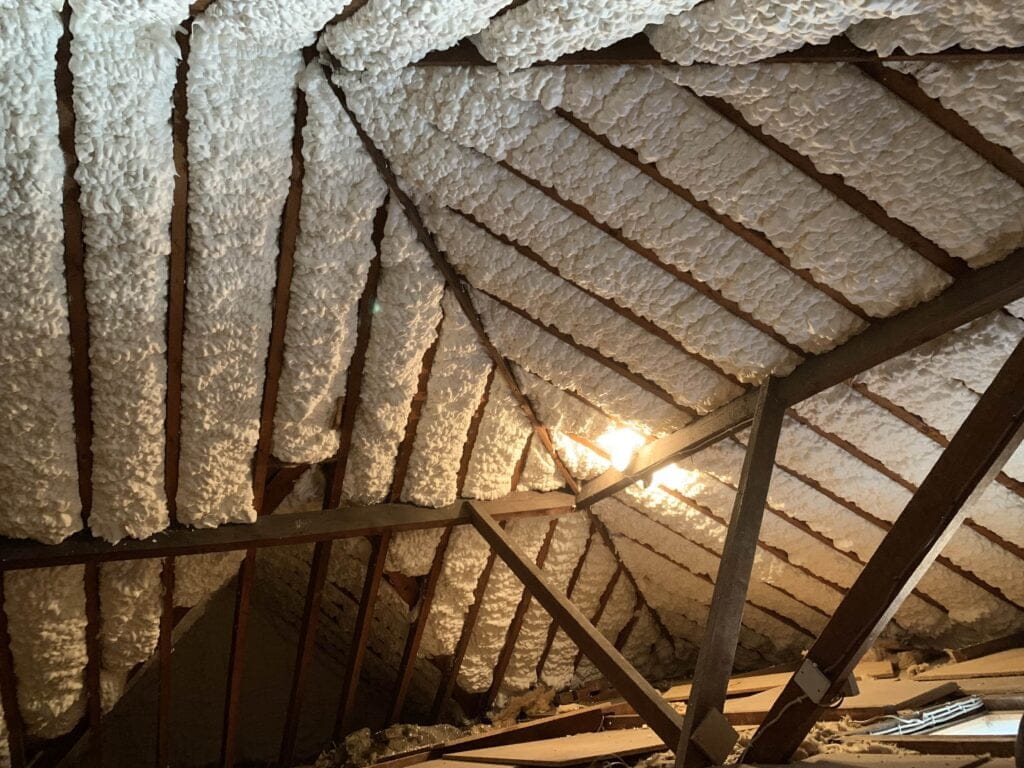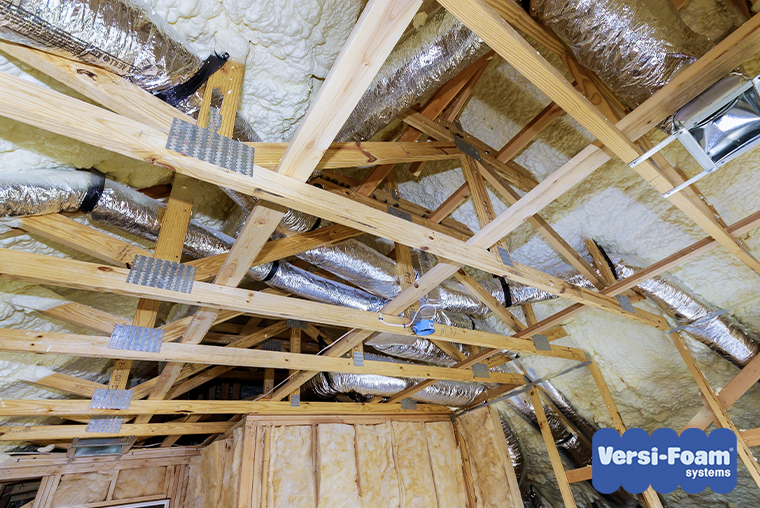Picking the Right Type of Spray Foam for Your Insulation Requirements
Picking the Right Type of Spray Foam for Your Insulation Requirements
Blog Article
Top Factors to Select Spray Foam for Your Next Insulation Project
When taking into consideration insulation options for your following project, spray foam stands out due to its outstanding efficiency qualities and performance benefits. As you evaluate your selections, checking out the flexible applications and long-lasting benefits of spray foam might reveal engaging factors to integrate it right into your insulation strategy.
Superior Insulation Performance

The high R-value of spray foam, which determines its thermal resistance, is another key advantage. Closed-cell spray foam, as an example, can attain an R-value of as much as 6.5 per inch, substantially outperforming fiberglass batts and cellulose. In addition, spray foam insulation develops an airtight seal, which minimizes thermal bridging and lowers the potential for mold development due to moisture build-up.

Energy Effectiveness Perks
The power performance advantages of spray foam insulation are considerable, further boosting its charm as a top selection for constructing insulation. One of the primary benefits is its superior thermal efficiency. Spray foam expands upon application, developing an impermeable seal that lessens air leakages, which is a common source of power loss in traditional insulation materials. By efficiently lowering thermal connecting, it preserves a constant interior temperature level, consequently decreasing cooling and heating expenses.
In addition, spray foam insulation flaunts a high R-value per inch, which means it uses extra thermal resistance in much less room compared to options like fiberglass or cellulose (Spray Foam). This efficiency not just contributes to instant power cost savings but also promotes lasting sustainability by lowering the overall energy consumption of a building
In addition, the application of spray foam can qualify property owners for power effectiveness incentives and tax credit reports, adding financial advantages to its energy-saving abilities. In a period where energy preservation is vital, selecting spray foam insulation not only improves comfort yet additionally lines up with ecologically liable methods, making it a sensible choice for both industrial and household jobs.
Moisture and Mold Resistance
Offered its special make-up and application method, spray foam insulation uses exceptional moisture and mold and mildew resistance, making it an excellent choice for various settings. The closed-cell framework of spray foam produces a strong barrier that successfully seals off possible wetness access, consequently minimizing the likelihood of mold growth. Unlike conventional insulation products, which can take in water and give a reproduction ground for mold and mildew, spray foam remains unsusceptible moisture, enhancing the overall wellness of the interior atmosphere.
In addition, the application procedure of spray foam involves expanding and loading voids and fractures, making sure a tight seal that decreases air leaks. This characteristic not only boosts energy effectiveness but also aids control moisture levels within the area. Proper moisture control is vital for protecting against mold and mildew and mold, making spray foam insulation specifically useful in areas prone to wetness, such as basements and crawl spaces.
In enhancement to its moisture-resistant homes, spray foam is additionally naturally immune to mold and mildew development. This characteristic makes certain that structures and homes continue to be secure and healthy and balanced gradually, read review providing satisfaction to house owners and structure managers alike.
Long-Term Cost Cost Savings
Investing in spray foam insulation yields significant lasting cost financial savings, mostly via boosted energy efficiency. Unlike traditional insulation products, spray foam creates a closed seal that lessens air leak. This reduction in drafts leads to decrease cooling and heating expenses, as heating and cooling systems do not need to function More Help as hard to maintain comfy indoor temperature levels.
Moreover, the superior shielding residential properties of spray foam imply that homes stay consistently comfortable year-round, lowering dependence on energy-consuming appliances. With time, these financial savings can build up, leading to a recognizable reduction in energy bills.
Additionally, spray foam insulation contributes to the long life of your home's structure by preventing dampness buildup and mold growth, which can cause costly repair work. With its sturdiness and resistance to resolving, spray foam maintains its effectiveness throughout the years, ensuring that the first financial investment continues to pay off.
Essentially, choosing spray foam insulation not only enhances your home's energy efficiency but also equates into significant long-lasting financial advantages, making it a smart investment for house owners looking to reduce expenses while boosting comfort and sustainability.
Versatile Application Choices
Countless application options make spray foam insulation a very functional selection for a variety of structure jobs (Spray Foam). This versatility permits it to be successfully made use of in residential, industrial, and commercial settings, satisfying diverse insulation demands
Spray foam can be used in attics, walls, crawl spaces, and even roofing systems, offering smooth coverage that gets rid of voids and voids where air leaks typically occur. Its capacity to broaden upon application makes sure a tight seal, which is necessary for energy efficiency and wetness control.
Additionally, spray foam insulation is readily see this page available in different solutions, including open-cell and closed-cell types, permitting tailored remedies based upon particular project needs. Open-cell foam is lighter and better suited for soundproofing, while closed-cell foam provides premium insulation and structural integrity, making it excellent for areas revealed to dampness.
Additionally, spray foam can be used in hard-to-reach rooms, boosting its viability for retrofitting existing structures. With the ability to stick to numerous substratums, including metal, wood, and concrete, spray foam insulation sticks out as a functional alternative that fulfills the needs of modern-day structure practices.
Verdict
In final thought, spray foam insulation arises as an exceptional alternative for insulation jobs due to its phenomenal thermal resistance, power performance, and capability to produce impermeable seals that prevent moisture and mold and mildew development. Choosing spray foam insulation ensures a detailed remedy that satisfies the needs of contemporary construction and energy performance criteria.
When it comes to accomplishing optimum energy efficiency in commercial and household structures, spray foam insulation stands out for its superior insulation performance.The energy effectiveness benefits of spray foam insulation are considerable, more enhancing its appeal as a leading choice for building insulation.Investing in spray foam insulation returns substantial long-term cost savings, mainly with boosted energy performance.In conclusion, spray foam insulation emerges as a remarkable choice for insulation tasks due to its outstanding thermal resistance, energy performance, and capacity to develop impermeable seals that stop moisture and mold and mildew development. Selecting spray foam insulation makes sure an extensive solution that fulfills the demands of modern-day building and construction and energy performance standards.
Report this page